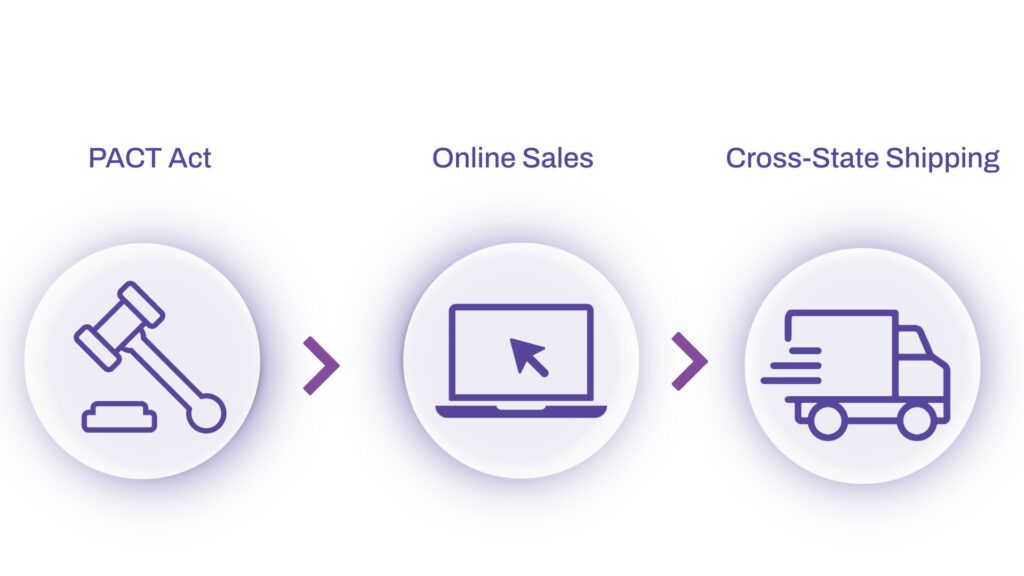Introduction
Selling e-liquid (nicotine-containing e-juice / vape juice) online in the United States is legally complicated: federal rules set a baseline, but states and localities add layers of licensing, taxes, flavor or product bans, and shipping restrictions. This article will use the acronym ENDS in reference to Electronic Nicotine Delivery Systems. The guide below summarizes the major E-liquid regulatory requirements, including common state-level variations and federal laws.
Federal Regulatory Requirements
Firstly, the federal e-liquid regulatory requirement is T21. A federal law raised the minimum legal age to buy tobacco products- including e-cigarettes and e-liquid- from 18 to 21. It became effective on December 20, 2019, and applies to all in-person and online sales.
Seccondly, E-liquid regulatory requirement is that Amendments to the Prevent All Cigarette Trafficking (PACT) Act extend to remote businesses selling e-cigarettes and nicotine products. These regulatory requirements include verifying the age of buyers, complying with state and local licensing, and excise tax and more. The PACT Act was enacted with the intention of reducing tobacco use among Americans. To reduce tobacco use in certain communities, the PACT Act requires online E-liquid businesses to abide by local sales policies. This means that businesses can’t sell to customers in states that have banned E-liquid products.
The last e-liquid regulatory requirement has to do with shipping carriers. Mailing and carriage of e-cigarette products is restricted. USPS and many carriers impose specific rules and, in some contexts, ban the mailing of certain e-cigarette products. Carriers also require an adult signature on delivery and ID verification when shipping tobacco. Always check the carrier’s current policy before shipping your products with them.

State-Varied Regulatory Requirements
There are regulatory requirements regarding ENDS products, and each state takes its own stance based on the issues of its constituents. E-liquid may be subject to state excise taxes on tobacco and ENDS products. Some states require tax stamps or prepaid tax reporting for shipped products. Under the PACT Act, sellers must comply with state tax rules for remote sales. California is among the states that require excise taxes.
Additionally, all online vape businesses need licenses. Many states require tobacco vendor licences for anyone selling nicotine products online. Before selling in multiple states, you may need multiple state licenses.
Also, specific vape items face state-wide regulatory requirements. A few states have restricted or banned disposable flavored pods, certain nicotine concentrations, or device types. For example, California and New York have prohibited the sale of most flavored products, with a few exceptions, while New Jersey has banned all flavored tobacco products. Check the law where the customer is located.
Conclusion
Navigating the regulatory landscape as an online vape business is a complex and demanding task. FutureEcom provides a platform specifically for regulated businesses like yours. Does migrating sound too overwhelming and costly? We can migrate your website for you, or plug into your existing one. Learn more about how FutureEcom can help your regulated business.
Written by Arielle Edberg from FutureEcom

